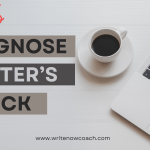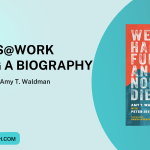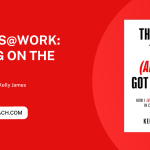Stuck? Proven Tools to Boost Creativity
August 2, 2016
Note From the Write Now! Coach
Dear Writers,
Over the years, I’ve worked with many clients who’ve experienced writer’s block, become stuck on research questions, or had difficulty finishing projects. Though I work to craft a unique solution for each client, I’ve noticed that some tools help many people get unstuck. Today’s tip talks about some of the tools I use to help clients boost creativity. I hope the tools help you unleash your creativity and write!
Happy Writing!
Rochelle, the Write Now! Coach

Stuck? Proven Tools to Boost Creativity
by Rochelle Melander
Last month, I took an Oprah and Deepak meditation experience called, Getting Unstuck: Creating a Limitless Life! In one of Deepak Chopra’s teachings, he said, “It has been estimated that for most people half the thoughts they have today are the same as the ones that they had yesterday.”
Wow.
I wonder:
+How many of our daily thoughts are negative? (Some say up to 70 percent, but I had difficulty finding research to prove that number.)
+How do repetitive thoughts impact our creative life?
+How can we stimulate new thinking?
I read up on brain science and creativity. It turns out that creativity is connected to something called neuroplasticity—the brain’s potential to reorganize itself, creating new neural pathways. According to an article by Brent Crane in The Atlantic,
“Neural pathways are influenced by environment and habit, meaning they’re also sensitive to change: New sounds, smells, language, tastes, sensations, and sights spark different synapses in the brain and may have the potential to revitalize the mind.”
New experiences stimulate our brain and help us connect ideas, information, and experiences. These new connections can radically affect our creative work. As Steve Jobs said,
“Creativity is just connecting things. When you ask creative people how they did something, they feel a little guilty because they didn’t really do it, they just saw something.”
If you’re feeling stuck—mired in repetitive thoughts and habits, not sure how to solve your current creative problem, or confused about how to move forward in your writing career, you might need a dose of newness! Here are three proven ways to stretch your brain and spark creativity.
Learn a Craft
A recent study demonstrated that seniors who learned a new skill, like quilting or Photoshop, improved their cognitive function. But the benefits don’t stop there. Repetitive crafts, like crochet, can reduce stress as effectively as meditation. Plus, research shows that crafting can have a dopamine effect, improve our sense of self-efficacy and reduce our chances of developing cognitive impairment as we age.
Pro tip: Note that to keep your mind sharp, you just need to learn a new skill. That’s good news for those of you who are craft averse. You can learn to play an instrument, speak Italian, or rebuild a car!
Travel Abroad
In a study that examined creativity and fashion, the researchers discovered that fashion designers who lived and worked abroad produced more consistently creative work. For those of us who don’t get many opportunities to leave our state let alone the country, we can create the same kind of experience at home. Travel to a new place near you—a small town, a neighborhood or even a restaurant. When you travel anywhere in your community—by foot, bike, or car—take a new route.
Climb a Tree
Physical activities that engage proprioception and the cerebellum—like climbing a tree or walking on a balance beam—improve our working memory. (Proprioception is simply our ability to know where a body part is and activate it without having to look.) Of course, you can get a similar benefit from trying balancing workouts at the gym or visiting a climbing wall.
Bonus Tool: Exercise
We know that exercise boosts creativity and productivity. Writers are famous for walking. William Wordsworth composed entire poems on his legendary long walks. Rumor has it that Agatha Christie created her complex plots on long walks with her dogs. Art Kramer, a neuroscientist at the University of Illinois, found that just 45 minutes of exercise three days a week increased the volume of the brain.














